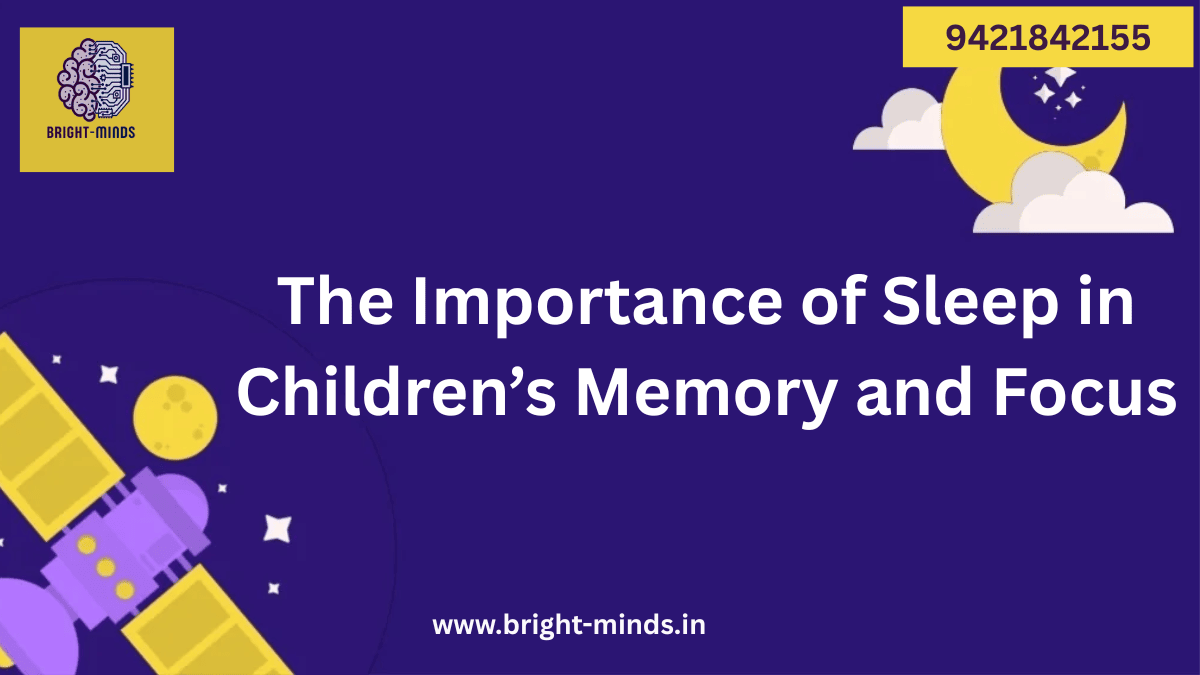Ever noticed how kids can go from bright-eyed and curious to cranky and forgetful after a late night?
It’s not just a mood swing — sleep directly impacts a child’s memory, attention span, and overall ability to learn.
In today’s fast-paced world where families juggle school, screen time, and endless extracurriculars, quality sleep often takes a back seat. But what many don’t realize is that sleep isn’t a luxury for children — it’s a biological necessity for their brains to grow, learn, and thrive.
Whether you’re a parent, educator, or even a corporate employee managing work-life balance, understanding the role of sleep in children’s cognitive development is essential — not just for academic success, but for long-term emotional and mental health.
🧠 Why Is Sleep So Crucial for Learning?
Here’s what happens when a child sleeps:
- 💤 The brain processes and stores new information — turning short-term memories into long-term learning.
- 💤 Neural connections strengthen, which helps in better problem-solving and decision-making.
- 💤 Attention and focus are sharpened, allowing children to absorb and retain more during the day.
Research from the National Sleep Foundation shows that children who get the recommended amount of sleep have better memory retention, higher test scores, and stronger emotional regulation.
💡 Sleep isn’t downtime — it’s when the real learning magic happens.
📊 Market Trends & Industry Insights
The rising concerns about childhood sleep deprivation have led to a significant focus on sleep education and wellness in both homes and workplaces.
Key Trends:
- 📉 Over 70% of school-aged children do not get the recommended 9–11 hours of sleep, according to CDC data.
- 💼 Corporate wellness programs are beginning to include parenting resources — including sleep hygiene education for children.
- 🧑🏫 Schools are adopting later start times in response to evidence that better sleep improves student performance and behavior.
For companies looking to support employees who are parents, promoting healthy sleep routines at home is a low-cost, high-impact initiative. A well-rested child = a well-focused family = a more productive employee.
🛠️ Real-World Applications: How Sleep Affects Memory and Focus
Here’s how sleep (or the lack of it) plays out in real life:
1. Memory Retention
A child learns a new math concept in school. But without enough sleep, their brain doesn’t consolidate that learning. The next day? It’s as if they never learned it at all.
2. Attention and Focus
Ever tried reasoning with a sleepy 8-year-old? Lack of sleep leads to impaired concentration, frequent distractions, and even behavioral issues.
3. Mood and Emotional Control
Sleep deprivation can mimic ADHD-like symptoms and cause meltdowns, anxiety, and irritability — all of which impact learning and social relationships.
⏰ How Much Sleep Do Kids Really Need?
According to the American Academy of Pediatrics, the recommended sleep duration is:
- Preschoolers (3–5 years): 10–13 hours
- School-age children (6–12 years): 9–12 hours
- Teenagers (13–18 years): 8–10 hours
Consistency is key. It’s not just about how much they sleep, but also when they sleep. Late bedtimes and irregular routines disrupt the natural circadian rhythm, making it harder to fall asleep — and stay asleep.
💡 Practical Tips to Improve Children’s Sleep and Learning
Here are some real-life, doable strategies to make sleep a learning ally:
✅ 1. Create a Wind-Down Routine
Bath time, story time, quiet music — help signal the brain that it’s time to sleep.
✅ 2. Set Consistent Bedtimes (Even on Weekends)
A regular sleep schedule stabilizes the internal body clock, improving sleep quality.
✅ 3. Cut Off Screens 1–2 Hours Before Bed
Blue light from phones, tablets, and TVs interferes with melatonin production, delaying sleep.
✅ 4. Encourage Daytime Physical Activity
Active kids sleep better. Outdoor play helps burn off energy and reduces stress.
✅ 5. Keep Bedrooms Cool, Dark, and Quiet
Create a sleep-friendly environment that promotes deeper rest.
💼 Corporate Application: How Employers Can Support Family Sleep Wellness
Sleep doesn’t just affect kids — it affects the entire household. When children don’t sleep well, parents don’t either. This impacts workplace focus, attendance, and productivity.
Forward-thinking companies are now:
- Offering webinars and courses on child development and sleep hygiene
- Including sleep coaching in employee wellness packages
- Promoting work-life balance with flexible scheduling for parents
- Encouraging family-focused initiatives that support mental wellness at home
When employers invest in family wellbeing, they’re investing in a more focused, present, and loyal workforce.
It might be helpful:

